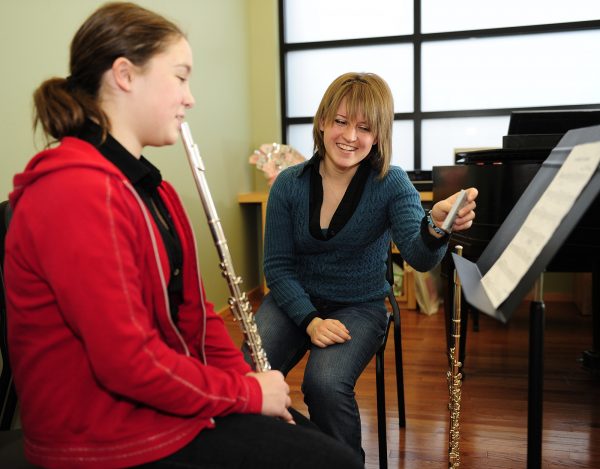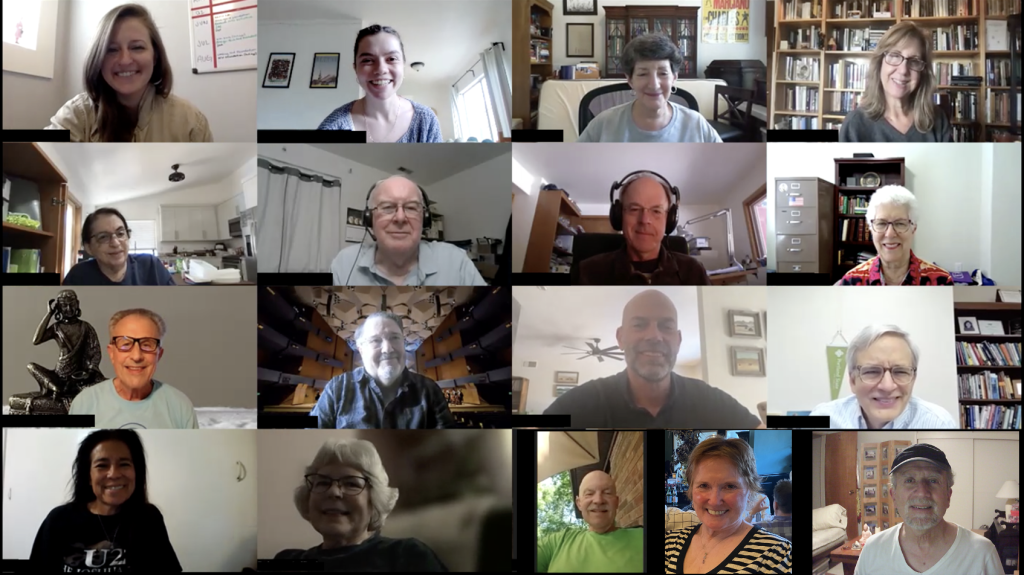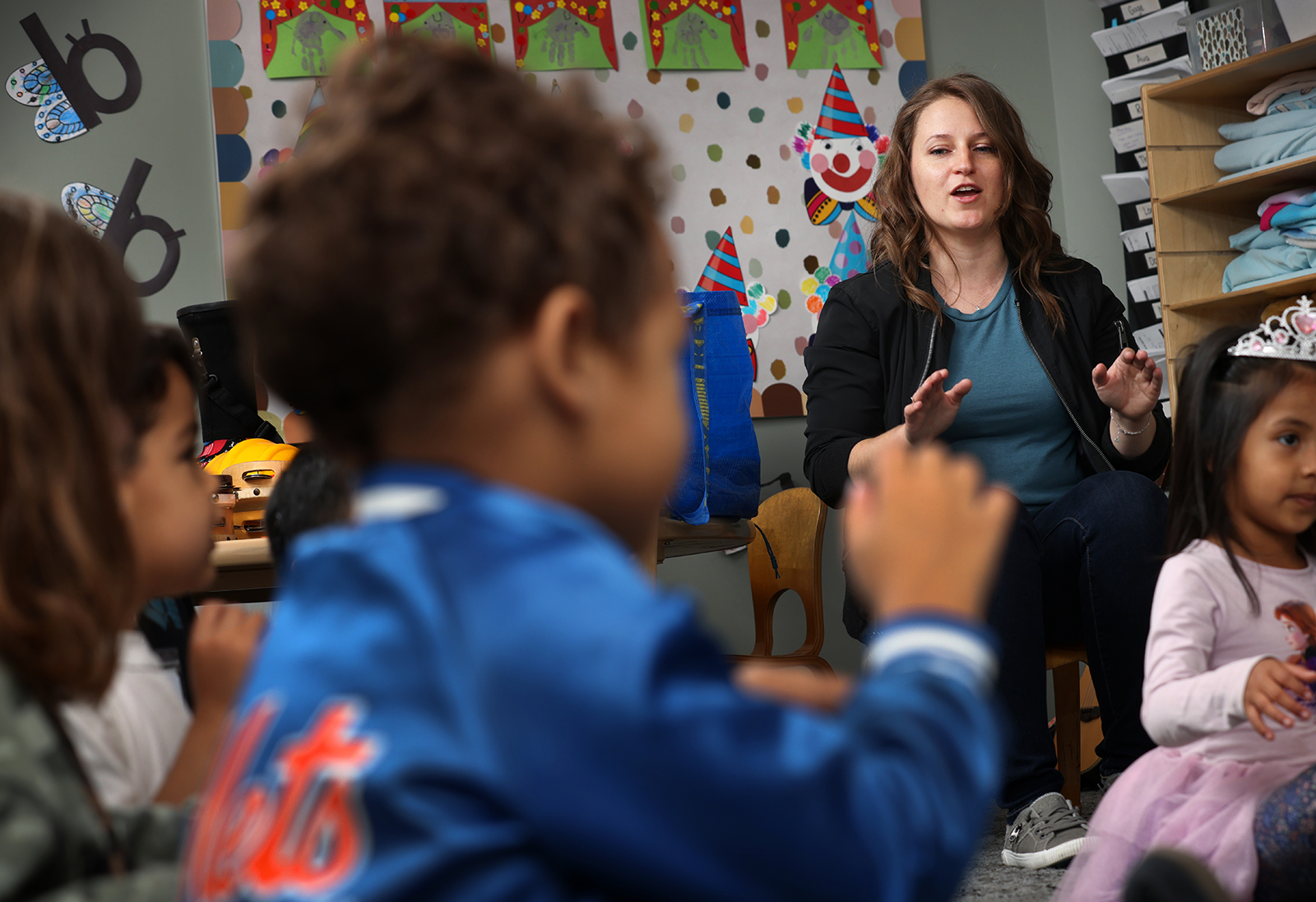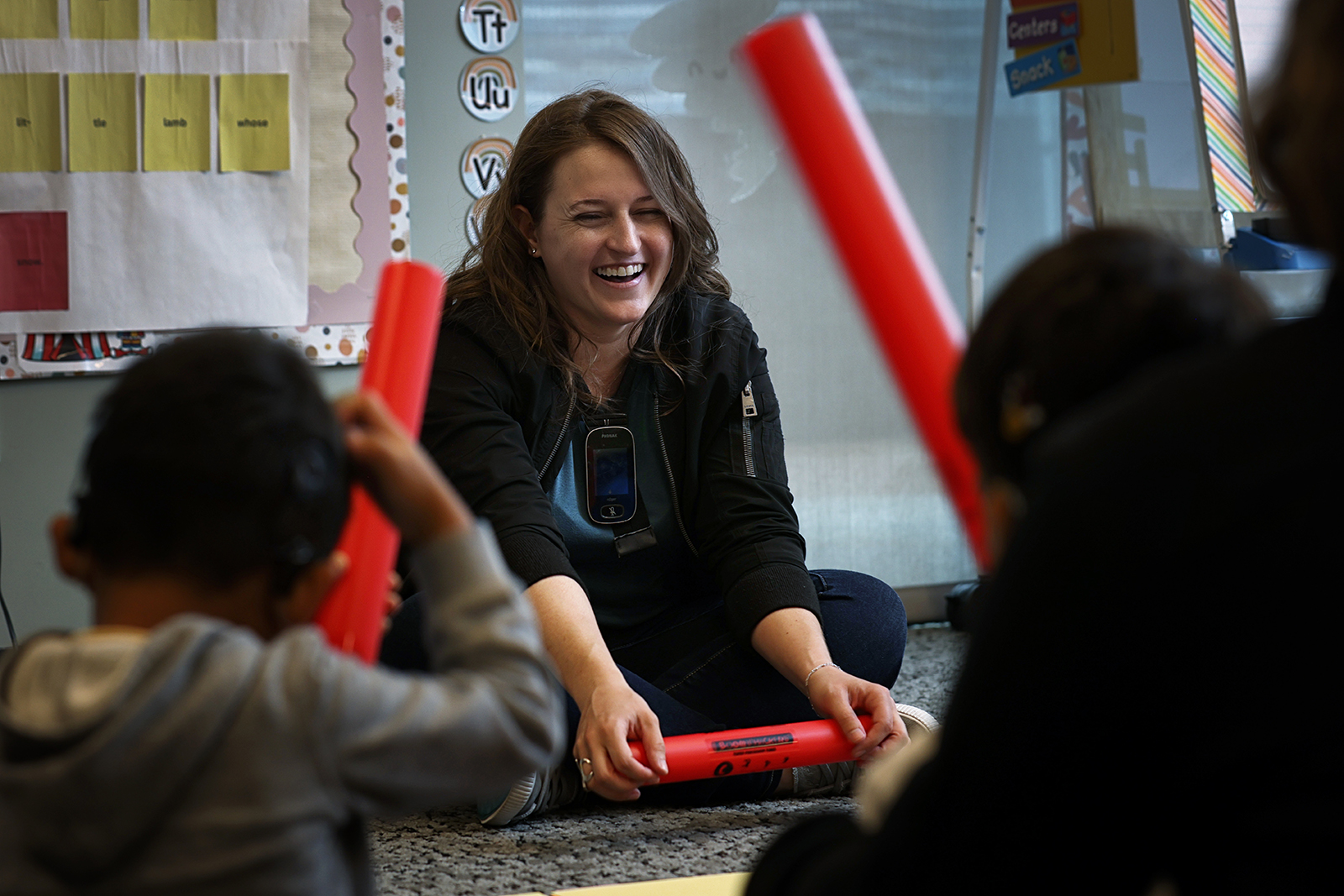Whether on a Zoom call with adults regaining their ability to enjoy music through assistive technology like cochlear implants, or working with preschoolers with no music experience at the Neighborhood Music School in Los Angeles, community music facilitator Chrysa Kovach helps make music accessible for all. “As the arts are often being moved out of the public school system, community music schools are picking up the slack to make sure that music education is available for everyone,” Kovach says.
Before attending Blair School of Music, where she majored in musical arts (flute) and Spanish, Kovach knew that she did not want to be a traditional classroom teacher. She found her fit when she volunteered at Nashville’s W.O. Smith Music School.

“W.O. Smith changed my trajectory,” she says. After graduation, she worked there and founded the W.O. Smith Community Orchestra. She was preparing to audition at the Mozarteum in Salzburg, Austria, for a graduate program in conducting when she realized that she had already found her mission.
“This is what launched my move to L.A.,” Kovach says. “When I searched ‘community music,’ the only thing that came up in the United States was a brand new graduate program at the University of Southern California.”
While in the program, Kovach began to assist with The CI Music Hour, an initiative of USC’s Bionic Ear Lab, that connects cochlear implant recipients—some of whom had been professional musicians before losing their hearing—with each other and with music resources to help them on their music appreciation journey post-implantation.

The focus of most of those participating in the group is learning how to listen to music with the devices, because assistive devices like implants or hearing aids are made with speech comprehension in mind. “The sound envelope for speech is much smaller than for any kind of music,” she says. “And some people have reported being told, ‘You’ll get speech, but forget about hearing music.’ However, there’s a lot of research now on music and cochlear implants,” including research on well-being recently published in the International Journal of Community Music that Kovach has written with her co-facilitator at the Music Hour, Julianne Papadopoulos. This summer, she and Papadopoulos presented their findings at the Hearing Loss Association of America.
Kovach also has developed a partnership between the Neighborhood Music School in Los Angeles and the John Tracy Center, a nearby preschool that serves children with hearing loss along with typically hearing students. The children use many toys, such as Boomwhackers—tubes of pitched, colorful plastic—to learn how different notes sound. Kovach and the chief program officer at John Tracy

presented research this summer at the AG Bell Global Listening and Spoken Language Virtual Symposium.
“It’s advocacy to show that those with hearing loss can take part in music and enjoy it,” Kovach says. “It’s going to be different, and it might be difficult, but it can be done.”
—Bonnie Arant Ertelt
